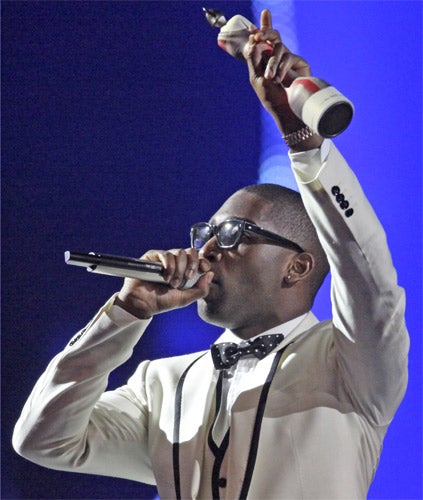The Week in Radio: Could Radio 4 learn from Tinie Tempah?

Your support helps us to tell the story
From reproductive rights to climate change to Big Tech, The Independent is on the ground when the story is developing. Whether it's investigating the financials of Elon Musk's pro-Trump PAC or producing our latest documentary, 'The A Word', which shines a light on the American women fighting for reproductive rights, we know how important it is to parse out the facts from the messaging.
At such a critical moment in US history, we need reporters on the ground. Your donation allows us to keep sending journalists to speak to both sides of the story.
The Independent is trusted by Americans across the entire political spectrum. And unlike many other quality news outlets, we choose not to lock Americans out of our reporting and analysis with paywalls. We believe quality journalism should be available to everyone, paid for by those who can afford it.
Your support makes all the difference.If the BBC Trust is serious about wresting the young and ethnic minorities away from their existing radio choices and on to Radio 4, it should perhaps get in touch with Brits winner Tinie Tempah. On paper, he already sounds like the archetypal Radio 4 listener. "He was passionate about English and Shakespeare," enthused his school teacher. "He was the only person I knew who looked forward to National Poetry Day." Unfortunately for the Trust, the 22-year-old from Peckham who has risen to be Britain's foremost rapper seems entirely resistant to social engineering and loyal to Radio 1Xtra.
Radio 1's documentary Written in the Stars charted Tinie's journey to stardom. He got his calling aged five when he saw So Solid Crew on TV. "I remember the exact moment, like an epiphany, and everything was put into perspective," he explained. Staff at St Paul's Academy were bemused when he started carrying around files of lyrics. "I didn't understand what it was," confessed one, who thought it must be his coursework.
Moving to Plumstead was life-changing. "I got the ability to appreciate other cultures and I felt very privileged," said Tinie. He began to plot his future, found his name by flicking through a thesaurus looking for synonyms for anger, and ducked out of uni. Soon, he was being praised in The New York Times for his "shifting rhyme schemes, delivery and verve", and philosophising on his cultural significance. "I stumbled across Adam Smith's The Wealth of Nations and in a nutshell I deduced that as an individual if you veer off into the big bad world and fulfil your potential you will inspire those people from your original surroundings to go and do something for themselves. That was my theory." Despite the way that the interviews were irritatingly undercut with music, making them barely audible, this was a great story, enthusiastically told by 1Xtra's Gemma Cairney.
The fact that Tinie is intelligent, articulate and references Adam Smith, while also listening to 1Xtra means what exactly? He plainly doesn't feel ghettoised by it. Yet still the BBC Trust urges Radio 4 to woo people like Tinie of different ages, ethnicities and post codes to dilute its hideously white, middle-class monoculture. It makes Radio 4 sound like the aural equivalent of Switzerland, rather than the nation's great cultural jewel. I could go on, and probably will, but it's important to see that the Trust's comments are political. If you want to continue justifying a universal licence fee then you need your services to display universality – a philosophical conundrum that will become all the more pressing as technology presents greater arguments against the licence fee.
Not that varying the voice range of the network is a bad thing. There's been plenty of moaning about the Jamaican-born presenter Neil Nunes, but I find his rich, sonorous tones a welcome counterpoint to the prevailing Scots and RP. Another pleasure is Kate Saunders, who presented last week's A Good Read with a beautifully modulated, precise delivery, reminiscent of an English Miss Jean Brodie.
Ultimately, what we think depends, anyway, on the way the question is asked. This was explained in Mind Changers, Radio 4's fascinating account of how one woman, Elizabeth Loftus, fundamentally changed the way that we view memory, by showing how powerfully context and language can affect it. If, when asked about an accident, the word "smash" was used, eye-witnesses would say the cars were going faster, and were more likely to misremember broken glass. Loftus also managed to make 30 per cent of her subjects believe that they had visited Disneyworld as a child and shaken hands with Bugs Bunny – impossible because Bugs was a Warner Brothers character. The motto is, everyone embellishes stories. But then we journalists already knew that.
Join our commenting forum
Join thought-provoking conversations, follow other Independent readers and see their replies
Comments